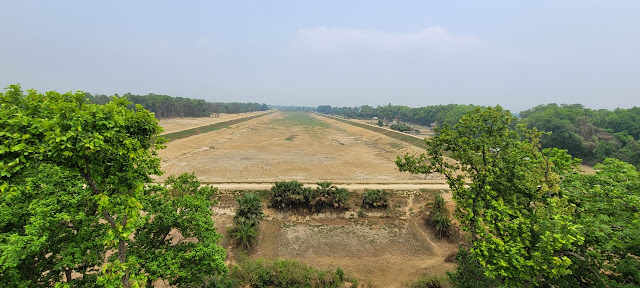Bangladesh's setbacks on the rise
One such critic was Bangladesh Awami League (AL) President Sheikh Hasina Wajed, who recently told the BBC that "public patience would begin to wear thin" if polls are delayed any longer. She also described the caretaker government as "undemocratic and unconstitutional."
She went on to say that the administration was depriving the people of the right to form their "own government."
The caretaker government took control of affairs in Bangladesh last December in reaction to worsening political turbulence over the demand for electoral reforms and other contentious issues. It promised elections in weeks but has not kept this pledge.
Instead it has launched what seems to be a no-holds-barred crackdown on corruption, inclusive of sleaze in high places, covering a range of VIPs, notably past Ministers and relatives of high profile politicians. One such personality is Tarique Rahman, the son of former Prime Minister Khaleda Zia.
Considering the virility which Bangladesh was acquiring as a functional democracy in South Asia, the delay in holding elections is indeed a setback for the country. The delay is bound to deepen fears that the country is back-tracking to authoritarian rule.
Bangladesh has an unenviable legacy of military rule and the perception that the caretaker government is military-backed is unlikely to ease public anxieties on the country's ability to bounce back into a democratic mould.
As was mentioned in this column some time back, a crackdown on corruption in public places needs to be welcomed but such measures must ideally be launched by a popularly-elected administration which would be duty-bound to abide by the Rule of Law and be accountable to the public and Parliament.
Such conditions would ensure the trying of suspects by the due process of law. An inability to adhere to the Rule of Law in such crackdowns would only expose them as mere populist measures whose true intent is highly suspect.
However, the most unsettling outcome from a suspension of the democratic process would be mounting political unrest and a rise in militancy. As it is, militant religious fundamentalism is reported to be on the rise in Bangladesh. Political repression could only aggravate these militant tendencies.
Ideally, these militant actors should be inducted into the democratic process. This is the only guarantee that they would not resort to extra- parliamentary means of acquiring power. However, if the democratic process is seen as stymied, these forces would heighten their extra-parliamentary activism, posing grave law and order problems.
Even from the developmental point of view, the events in Bangladesh could be seen as a considerable setback. Bangladesh was forging ahead as a model welfare state with an enviable Per Capita Quality of Life Index.
It could be said that these gains were possible because Bangladesh was a vibrant democracy. Accountable governance, in short, rendered rulers sensitive to the people's needs. Democratic institutions ensured the delivery of the people's bare essentials, such as, food, clothing and shelter.
A suspension of the democratic process could spell an end to such development. For, an unrepresentative administration would prove less sensitive to the public's needs. Hopefully, democracy would soon be back on track in Bangladesh.
The latter has proved the complementarity between democracy and development and one could only hope that wise counsel would prevail among its current rulers.
Courtesy: Daily News (Srilanka)


Comments
Post a Comment